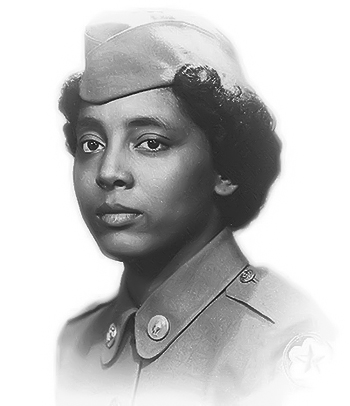 When Sarah Keys boarded an interstate bus traveling from New Jersey to North Carolina on a hot August day in 1952, she had no idea she would be making history. Private First Class Keys was stationed at Fort Dix in New Jersey and was traveling to her family’s home in Washington, NC. At that time, interstate bus travel for African-Americans was a bit complicated. Buses originating in the North that did not make any changes did not have to adhere to Southern segregation laws, which required Black passengers to sit in the back of the bus and/or give up their seat to a white passenger. Keys understood the laws and planned her trip with no changes, so she wouldn’t experience any hassles.
When Sarah Keys boarded an interstate bus traveling from New Jersey to North Carolina on a hot August day in 1952, she had no idea she would be making history. Private First Class Keys was stationed at Fort Dix in New Jersey and was traveling to her family’s home in Washington, NC. At that time, interstate bus travel for African-Americans was a bit complicated. Buses originating in the North that did not make any changes did not have to adhere to Southern segregation laws, which required Black passengers to sit in the back of the bus and/or give up their seat to a white passenger. Keys understood the laws and planned her trip with no changes, so she wouldn’t experience any hassles.
When the bus stopped in Roanoke Rapids, NC, there was an unexpected change of bus drivers. The new driver demanded Keys relinquish her seat to a white Marine. She refused and was arrested for disorderly conduct and spent a fearful night in jail. She was released the next day after paying a $25 fine, got on a bus and finally made it home. Keys pursued legal action but lost her case in a lower court. She didn’t give up. Armed with a new legal team, she took her case before the Interstate Commerce Commission and won. The ruling put an end to segregation on all interstate travel.
Sarah Keys Evans (her married name) unwittingly became one of the unsung heroes of the civil rights movement. To recognize her courage and activism, the town of Roanoke Rapids installed a plaza and mural named in honor of Evans, with the purpose of educating and empowering future generations. Learn more about her life and impact by reading this post on the VAntage Point blog.







